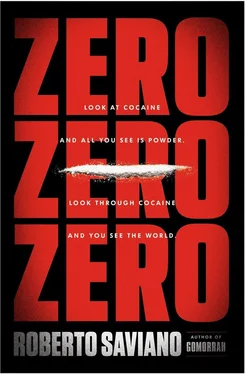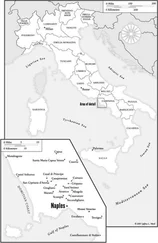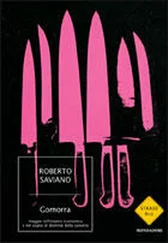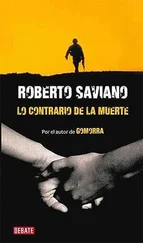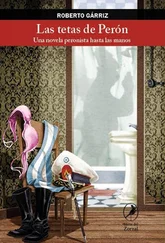Europe needs cocaine, lots of it. There’s never enough. The Old Continent has become the narcos’ new frontier: 20 percent to 30 percent of cocaine production worldwide ends up here. Cocaine has attracted a new clientele. If until 2000 it was used almost exclusively by the privileged strata of society, now it’s more democratic. Adolescents, who never used to get near this sort of product, are today the most attractive slice of the market. It was enough for the narcos simply to diversify the offer and flood the European market with cocaine, lowering the price. Today a gram of cocaine costs around €60 on the streets of Paris, compared to €100 about fifteen years ago. According to the European Monitoring Centre for Drugs and Drug Addiction, about 13 million Europeans have sniffed cocaine at least once in their lives; 7.5 million of them are between the ages of fifteen and thirty-four. The number of cocaine users in the UK has quadrupled in ten years. The Central Office for the Suppression of Illicit Drugs Trafficking in France estimates that the number of consumers doubled between 2002 and 2006. By now the market has stabilized; it has its consumers and its habits. The soul of commerce is not publicity but habit. It is the creation of needs, which become so instilled in the user’s consciousness that they are no longer considered a need. In Europe, together with the cocaine habit, a silent army has been born, one that marches in close rank, heedless and resigned, with an addiction that has become a custom, practically a tradition. Europe wants cocaine, and so the narcos find ways to get it there.
• • •
I’m sitting with Mamadu, a young African man with a sweet but determined face. He tells me he was supposed to be named Hope, but then his parents discovered that in other parts of the world it was a girl’s name. He was born at the time that his country, Guinea-Bissau, was experimenting for the first time with multiparty elections. On the horizon loomed an uncertain future but one full of expectation after all the wounds of civil war and repeated coups. His family was originally from the town of Bissorã, but they moved to the capital, Bissau. History repeats itself. People sacrifice their roots for the hope of progress; the city becomes the Eden everyone dreams of. But the hope with which Mamadu’s parents wanted to bless the birth of their son is betrayed once again: civil war, coups, and endemic poverty bog the country down in a deadly immobility. Mamadu learns the art of getting by — the profession that, since the beginning of time, employs the most people — and starts to develop the characteristic that many international bureaucrats associate with people from his country: resignation.
But something has changed recently. His continent has become white. It has become an important landing base for narco-traffickers.
“Your country’s the center of the world now,” I say to him.
Mamadu laughs and shakes his head with symmetrical slowness.
“I’m serious,” I insist. “Your country deals in one of the most sought after products there is.”
“Why are you making fun of me, my friend?” Mamadu says, serious now. “What resources? Cashews, maybe? Locusts?”
The truth is, Guinea-Bissau, like the countries that border it, is exactly what the narco-traffickers are looking for. Africa is fragile. Africa is the absence of rules. The narcos work their way into these enormous vacuums by taking advantage of tottering institutions and ineffective border controls. It’s easy to give birth to a parallel economy, to transform a poor country into an immense warehouse. A warehouse for a Europe increasingly dependent on white powder. If you add the fact that the citizens of Guinea-Bissau, by virtue of their colonial past, are allowed to enter Portuguese territory without a visa, then Mamadu’s country really is the center of the world.
Mamadu tells me about the day in 2009 when he happened to pass by the residence of the president of the republic, João Bernardo Vieira. At first he mistook the shots for firecrackers, which he’d always been afraid of, and he turned in the direction of the noise in order to look the little dynamiters in the face. But there was only a throng of people that drew aside in a disorderly fashion as two cars, tires squealing, slalomed their way through the terrified passersby. On the ground the crumpled body of some man he didn’t recognize. It wasn’t until the next day that Mamadu, glancing at the headlines, learned that it was the president of the republic. Many people saw his execution as a form of revenge at the hands of the military for the killing the day before of the army chief of staff, Batista Tagme Na Waie. Others read the assassination as retaliation on the part of Colombian drug traffickers in Guinea-Bissau for the dismissal of Rear Admiral Bubo Na Tchuto, chief of staff of the navy, on suspicion of conspiring with the drug cartels (a charge to which he would plead guilty in a U.S. court in May 2014). For Mamadu it was simply another wound.
In 2007 Time magazine defined Guinea-Bissau as a paradise for traffickers, a state that welcomes drug traffickers and distributes their goods. It helps if you have an archipelago off your coast, eighty-eight islands where small aircraft laden with drugs can land. An open zone for the cartels’ personal use. An earthly Eden, practically uninhabited and covered in lush vegetation, bordered by pure white beaches and sliced through by improvised landing strips. It is on one of these strips that the Cessna that changed Mamadu’s life landed. Cessnas are perfect for this sort of job: They’re nimble and fly at a maximum altitude of sixty-five hundred feet, thus avoiding being picked up by radar. The drugs are crammed inside, in fruit crates stacked one atop another and stashed between the metal panels of the plane. The goods are unloaded and taken to the mainland, and from there they take off for Europe, following three major routes: land, which passes through the Atlantic coast of Mauritania and through Morocco, or over tracks in the Sahara before heading up through Turkey and arriving in the Balkans; sea, the most popular route, where commercial fleets of private container ships carry huge amounts of cocaine; and finally air, where couriers or mules usually ingest capsules filled with cocaine.
“A mule?” Mamadu had asked Johnny.
“A mule, Mamadu. You’ll take a little trip to Lisbon and then you’ll come back. Aren’t you happy?’
The person talking, Mamadu recalls, is a buff Nigerian who has shuttled between Abuja, Nigeria, and Bissau for twenty-five years. He goes by the name of Johnny and is an old friend of Mamadu’s father. He says he can give him a hand. Mamadu’s parents have gone back to their village: If you have to die of hunger, you might as well do it close to your own family, in the place where you were born. Johnny stands there in his fake Alexander McQueen suit, and as he talks he keeps touching Mamadu on his shoulder, arm, chest. He’s a salesman, and he knows that to place his goods, it’s not enough to be convincing; he has to establish a contact. Mamadu is hypnotized.
“Lisbon?”
“Lisbon, Mamadu. A few hours’ flight, then you take a walk around the old city, pick up a tourist or two, and catch the plane home.”
Getting drugs to Europe is easier than you’d think. All you need is a commercial flight, a passenger, and an indefinite amount of cocaine safely stored in special wrapping in the bottom of his stomach. Sure, it’s happened that the wrapping breaks during the flight and the mule spends hours in excruciating pain before landing in Lisbon as a cadaver. But most shipments are successful, in part because modern wrapping materials are resistant to gastric acid, to the point that you need to cut them with a knife to open them after they’ve been expelled, They used to use condoms, but that’s prehistory.
Читать дальше
